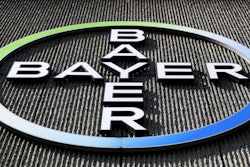China has long been hesitant to embrace GMO seeds. Although crops grown using GMOs are permitted for use as livestock, most foods using the seeds are banned for human consumption.
Now, under the terms of a recent trade agreement, China is promising to hasten its review of eight GMO varieties, which could bring them to market sooner. Reuters reports that the products under quicker review are made by major players in the space including Dow, DuPont Pioneer, Syngenta and Monsanto.
Typically, the Chinese can spend up to seven years reviewing GMOs before giving them the green light to be sold. This regulatory hurdle has made many seed developers wary of releasing new products until China approves them.
This issue has also impacted agrochemicals, many of which are designed to work in cohort with certain GMO seeds. Dow’s Enlist Duo herbicide, for example, was recently approved for use in the U.S. by the Environmental Protection Agency, but is still pending review in China.
China remains America’s biggest export market for agricultural products. In 2016 alone, the market was valued at $21 billion. Thus, the country’s decisions regarding seeds and chemicals can have a profound impact on the market.
In 2013, for example, China rejected corn shipments of U.S. corn after inspectors found that they were made with a GMO variety produced by Syngenta. The fallout has been huge.
Syngenta, which is close to finishing a regulatory review of its merger with ChemChina, sold the seeds under the name Viptera. It was approved for use in the U.S. but not in China.
Now, farmers across the U.S. allege that the rejection of corn that year cost the industry as much as $13 billion in damages due to depressed corn prices. A number of lawsuits have sprung up, with plaintiffs accusing Syngenta of selling the seeds under the false impression that they would be approved in China.
Syngenta has denied wrongdoing and has said that a global glut in corn is what caused prices to slide.






















